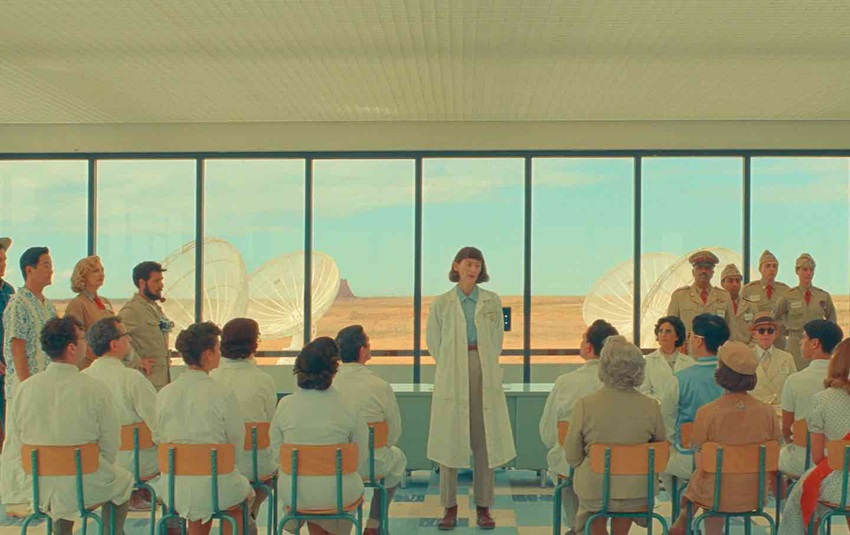
“I still don’t understand the play.” So muses Augie Steenbeck (Jason Schwartzman) multiple times through Wes Anderson’s story of a televised production of a fictitious play about death, grief, acting, “brainiac” children, alien invasion, military oversight, first romances, seasoned affairs, art, and storytelling itself.
Prior to Asteroid City I would have called The Life Aquatic with Steve Zissou the most
Andersonesque of all Wes films, but now I think this has to take that title. Whether anyone could make complete sense of Asteroid City in one or two viewings is something I doubt, but the film is all the richer for inviting its viewers to ask the same question as Schwartzman’s actor protagonist.
The death of a character invites a cosmic reflection from her family on what all our places in the universe are, and when a vehicle breakdown in the middle of the desert interferes with that grieving process, the newborn connections formed in one happenstance week can only climax with an even greater mystery.
A final reference to a deleted scene from the play within the movie calls into question what decisions we make with what time we have, and it may be the most moving scene Wes has ever written. Margot Robbie delivers that monologue with such perfect emotion it brings the grief underlying the story into focus. Augie may not know why his character burns his hand on a griddle, and neither may anyone watching it, but Wes finds his trademark humor in a story of loss, connecting the full gamut of human emotions. It’s not much different than Scarlett Johansson’s line as actress Midge Campbell: “I prefer to play abused, tragic alcoholics and one day I’ll probably be discovered lifeless in an overflowing bathtub with an empty bottle of sleeping pills spilled all over the floor, but… the sad thing is I’m actually a very gifted comedienne.”
That line is a stark acknowledgment of how grief can manifest itself, but also a longing to recognize all the gifts one has. The one thing I understand about Asteroid City is that for the rollercoaster of emotions it portrays, there’s nothing to be feared from painful ones because those are what we grow from. As a final chorus says, “You can’t wake up if you don’t fall asleep.” – Evan Cogswell (2023)
Arts & Faith Lists:
2023 Arts & Faith Ecumenical Jury — #8